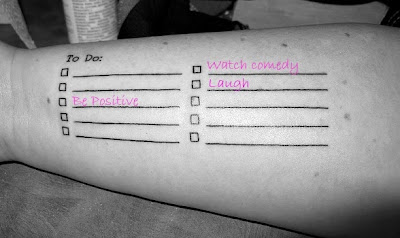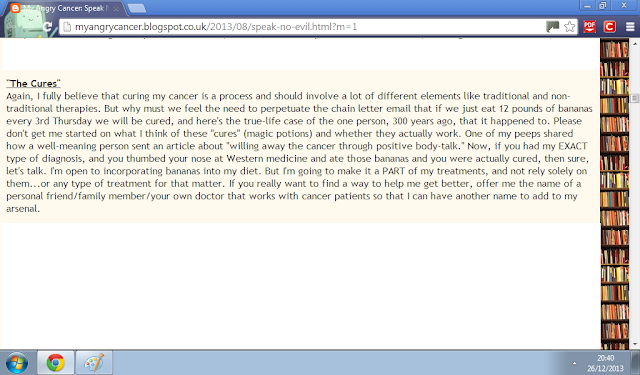Radiotherapy is the use of high-energy rays, usually x-rays and similar rays (such as electrons) to treat disease. It works by destroying cancer cells in the area that's treated.
Although normal cells can also be damaged by radiotherapy, they can usually repair themselves, but cancer cells can’t.
Radiotherapy is always carefully planned so that it avoids as much healthy tissue as possible. However, there will always be some healthy tissue that’s affected by the treatment and this will cause side effects.
Link for side effects: http://www.macmillan.org.uk/Cancerinformation/Cancertreatment/Treatmenttypes/Radiotherapy/Sideeffects/General.aspx
I've just completed week one of radiotherapy (started 19 May 2014 - 4 days after my last chemo cycle finished)and only have four days this week (thank you bank holiday). I have a review meeting every Tuesday to discuss any problems I may be experiencing.
I have a carpark permit which means I do not have to pay for parking during treatment.
I had two NHS tattoos a week or two after my last chemotherapy cycle finished, they are proper tattoos and the size of a blackhead. They act as markers for the beam, so the coverage over the area is consistent.
 |
| Google images |
Most people waiting for their treatment are men diagnosed with prostate cancer and all seem to share the same taste in stripy dressing gowns.
Last year I completed a Level 4 Certificate in Cancer Care with Staffordshire university and elected prostate cancer as one of my modules, the point being I know the lingo.
So what does radiotherapy entail?
I just take my top off and lie down, whilst they take all the measurements to ensure maximum coverage. I have both arms raised at this point. The room is freezing and if it's not bad enough getting the puppies out, then there is the added embarrassment of having your nipples on stalks, oh jeez (Although I am incredibly lucky to have found the aggressive little ****er early and still have a boob and nipple). I actually don't think I could count the amount of people who have seen my boobs since last September!
I have 3 weeks of general radiotherapy to the area and then 1 week of targeted, which will be the area where the tumour was removed.
I had to wait for 30 minutes this morning as the machines regularly break down and are regularly serviced.
I have my left arm raised and supported by a brace and stay still whilst the machine moves from left to right. The whole process takes between 10-15 minutes.
I have an aloe vera plant to treat the area as it can get darker and sorer as the days go on. I have also purchased aqueous cream which other people have recommended to keep in the fridge for the ultimate soothing effect.
Am I radioactive?
Last zap June 19th

































